On a Wednesday in April, Seahawks employees, along with the Institute for Common Power, a local teacher from Sammamish High School and Seahawks Legend Michael Bennett all made the journey to Atlanta, Georgia where they would begin a tour through both Georgia and Alabama.
This was the second Truth & Purpose trip the Seahawks have taken, with hopes of taking many more in the future. The tour, meant to teach about African American's experience throughout history but also empower those who go on the trip to enact change in their own ways, journeyed through Atlanta, Selma, Montgomery, Birmingham, Anniston, Tuscaloosa and Tuskegee. The impact of this trip could be felt on Day 1, as the group walked through the streets of Atlanta making stops on the historic Sweet Auburn Street and at Ebenezer Baptist Church.
Seahawks Legend Michael Bennett made the trip from his home in Hawaii, with his 17-year-old daughter, Peyton. For Michael, this trip felt like it was a way to pick back up the steps towards change he helped make when he was a player here.
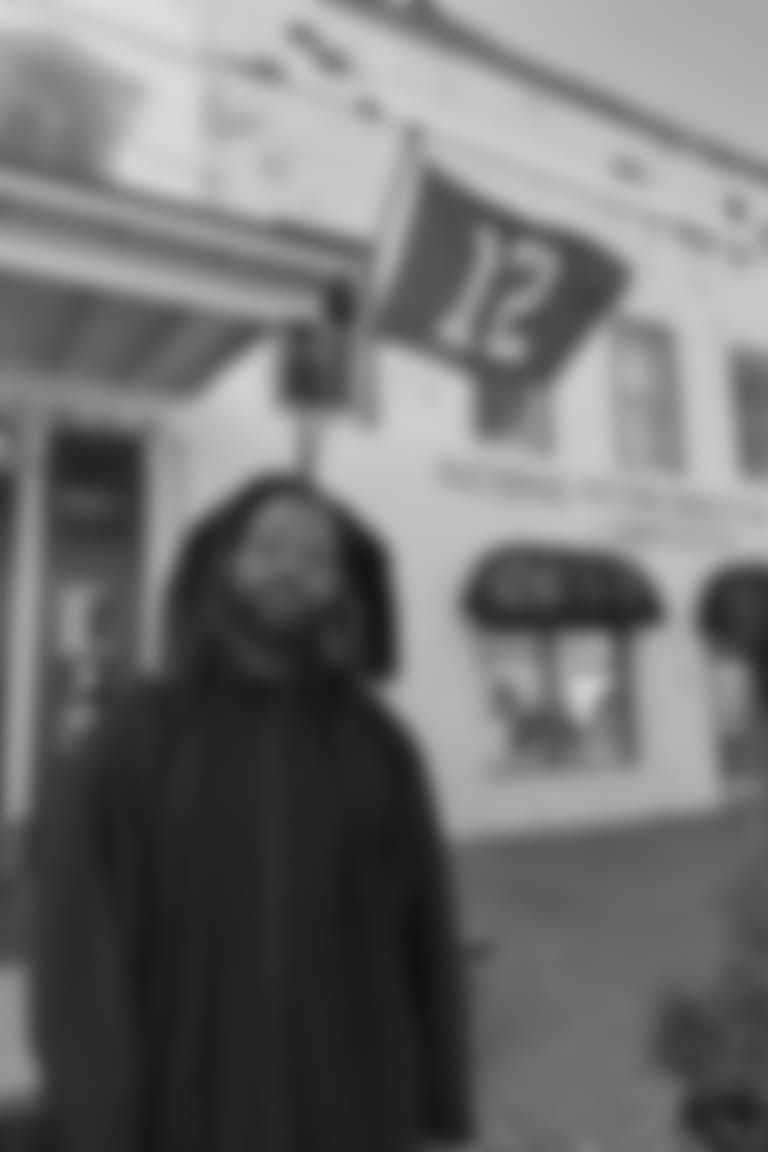
"Early on, when we were taking the knee and we were at the forefront of change, in sports… And we're making noise about police brutality, making noise about the injustice to women that are happening in this country. And we're on the forefront. I'm on CNN with Doug [Baldwin] with Anderson Cooper, and Spike Lee, in the White House with Obama talking about, where we we're going with this thing. I feel like fast forward into now, it feels like those steps and those things like they weren't for nothing. Because look where we are now we're in this town, and the Seahawks are pushing culture again. And how do we like bring people from where they are to where we want them to be? To be at the forefront of that in sport, I think that's really important because white society looks at Black athletes for a lot of different reasons. But very rarely do they look at us for our intellect. And being able to articulate ourselves about our position on culture and our position on humanity and our position in politics, it's really important not for them to see it, but for kids like us to see like it's not enough to just be good at catching a ball or running fast it's really important for you to be a great man."
The trip through Georgia and Alabama was a 7-day trip, which was jam packed with so much learning, discussions and honest conversations. While Michael was on the trip, a Sammamish High School teacher Lindsay Combs, also made the trip with the Seahawks. Combs teaches core and AP history and was selected by the Seahawks to go on the trip.
During the trip, the entire group visited historical places like the Freedom Riders greyhound bus station, the 16th Street Baptist Church and the Edmund Pettus Bridge, Michael talked about what that was like experiencing those places.
"In a trip like this, there's a fear that you're going to be uncomfortable," Michael said. "You're going to be reflective but I think uncomfortability is a part of growth...I wouldn't fear that type of growth, there's something that might push you to think differently about how you exist in the world and how you think about the world. I would say that if I have time to be on this trip, you have time to do it. All the uncomfortable things that you think are uncomfortable are so small to the existence of the people who fought for the world that we see free right now. Not until we put ourselves in their shoes can we have a sense of understanding of what they experienced."
Michael and his daughter and Combs and the students she would return to work and see, embodied the meaning of mentor and mentee.

"This is something that I've dreamed of being able to do," Combs said. "I never really thought that I would ever maybe come to the South. I certainly probably wouldn't really go on my own. Maybe I would be able to make a couple historical stops, but not really fully understanding what had happened here. Once I realized what this trip was, I was just like immediately yes. I need to go on this trip."
As an educator and especially being a history teacher, everything that Combs learned on the trip will be used in her classroom.
"I feel like I have so much more value in what I have to say about all these points of history when I talk about them in class and being able to answer students' questions a lot more. I think a lot of times kids will ask a question I'm like, 'Well, I'm not sure.' But I have so much more to say and so much more to be able to personalize and humanize about all of this, from slavery to mass incarceration," Combs said.
For Michael, having his daughter with him on the trip was deeper than him teaching her and for her to learn about history, because that is knowledge Michael said Peyton has, but about the opportunity "for her to be emerged in a culture where things critical have happened. A lot of it is really hard, because you're dealing with facts, and nobody wants to deal with history and honesty, because history and honesty is a reflection of who we can be. And there's some positivity is that came out of that. But there's also some deep truths that are painful and violent. To have my daughter with me, along this journey is good for me to have somebody to have a conversation with about what she's seen, how is she going to use she's seeing, to make an impact. It only takes one ounce of water to make a plant start to grow. These kids are the future. For them to see culture at the finest, to walk across the [Edmund Pettus Bridge], where Martin Luther King Jr. walked, where John Lewis walked in, to be in an environment at the [16th Street Baptist Church] and realize that it was 3,000 kids that could help make that movement happen… kids really do have a voice because they have a lot more days in front of them than we have behind us…her future can be very bright by seeing the impact of culture and then also seeing the impact of Black women who were at the forefront of their positions."
But throughout the trip, the importance of making sure that everything that was learned and discussed during those seven days, didn't just stay as words and thoughts and rather turned into action was important.
"For me to continue to work to see other people and to see their experiences and find ways not to only build a world around them, but also listen and take the time to like, just let community tell us what it needs to think best," Michael said. "For me, that's kind of where I continue to build through my foundation through philanthropy and through activism. That's the most important thing. I want to continue to push the Seahawks to continue this type of work because I don't know if organizations understand the impact that they have, because we were stuck in a bubble... But I think trips like this reminds us that like, that's not enough for us to be on 12 Seahawks Way. You have to be you have to be all over Seattle, all over the city and reminding people that like outside of that office, this 12 and this Seahawks (logo) doesn't represent capitalism and team, it represents humanity. And this type of trip reminds us that there's more for us to do, not to just represent the organization on that Sunday. But how we represent the organization between Monday and Sunday."
For Combs, it's talking with other educators about the importance of this trip.
"How I can help is physically talking to other teachers as much as I can. That's what got me on board with this, with someone talking to me in person. Everybody gets a lot of emails all the time. I think it could be easy to kind of just skim through something and be like I don't have time for that. But being able to talk to someone in person and tell them, 'You need to do this. You can do this.' is really powerful. That's what got me on this trip, so I hope I can get other people as well," she said.
Over the course of the trip, Michael realized that his voice held more weight than he thought.
"What I didn't realize is how much of an influence that I have on the Seahawks, when it comes to recent politics," Michael said. "So, I think going forward it's kind of important for me to be a part of those conversations...This is what a legend is. A legend isn't so much about how many touchdowns you had, the biggest hits you had. Legend is kind of a short word for legacy. That is what it comes down to. How much of a legacy can players have? And how much legacy can the organization have?...What I've learned over this trip is that you have to give people space to meet you where they're at, because you can't expect everybody to be where you've been. Having these kinds of conversations from the top of the organization and spreading it out to different groups, and not having any silos and but more a open conversation about race and politics, it's super important for this society to grow. And also for the organization, to have a bigger voice in sports."
The 7-day journey to Georgia and Alabama was meant to teach, provoke discussions and empower those who took the trip to enact change in their own ways. Each person including Michael, Peyton and Combs all walked away from the trip different than they'd begun the trip. And left feeling like they could go and create change, even if it's in small ways.
You can learn more about the Institute for Common Power Truth and Purpose learning experience here.
Seahawks rookies Christian Haynes, Tyrice Knight and Michael Jerrell attended the Speak With Purpose event to support youth public speakers on Sunday, June 16, 2024.

Seahawks rookies Christian Haynes, Tyrice Knight and Michael Jerrell attended the Speak With Purpose event to support youth public speakers on Sunday, June 16, 2024.

Seahawks rookies Christian Haynes, Tyrice Knight and Michael Jerrell attended the Speak With Purpose event to support youth public speakers on Sunday, June 16, 2024.

Seahawks rookies Christian Haynes, Tyrice Knight and Michael Jerrell attended the Speak With Purpose event to support youth public speakers on Sunday, June 16, 2024.

Seahawks rookies Christian Haynes, Tyrice Knight and Michael Jerrell attended the Speak With Purpose event to support youth public speakers on Sunday, June 16, 2024.
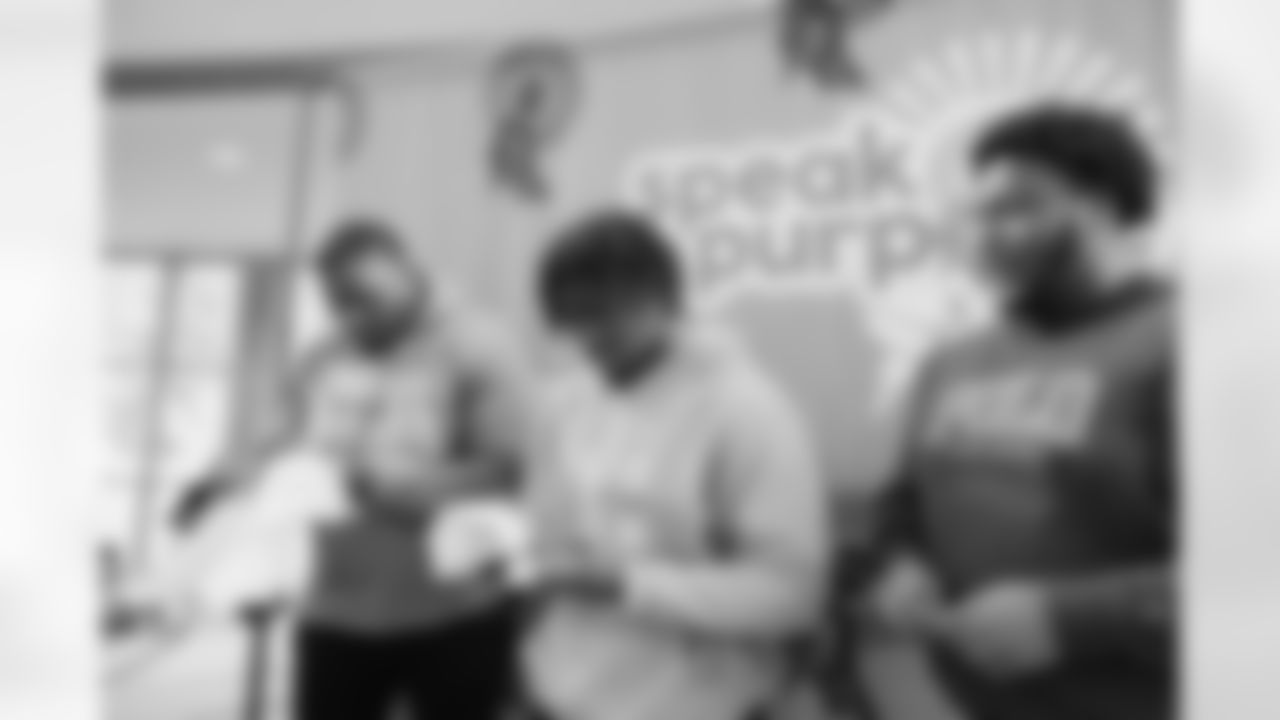
Seahawks rookies Christian Haynes, Tyrice Knight and Michael Jerrell attended the Speak With Purpose event to support youth public speakers on Sunday, June 16, 2024.
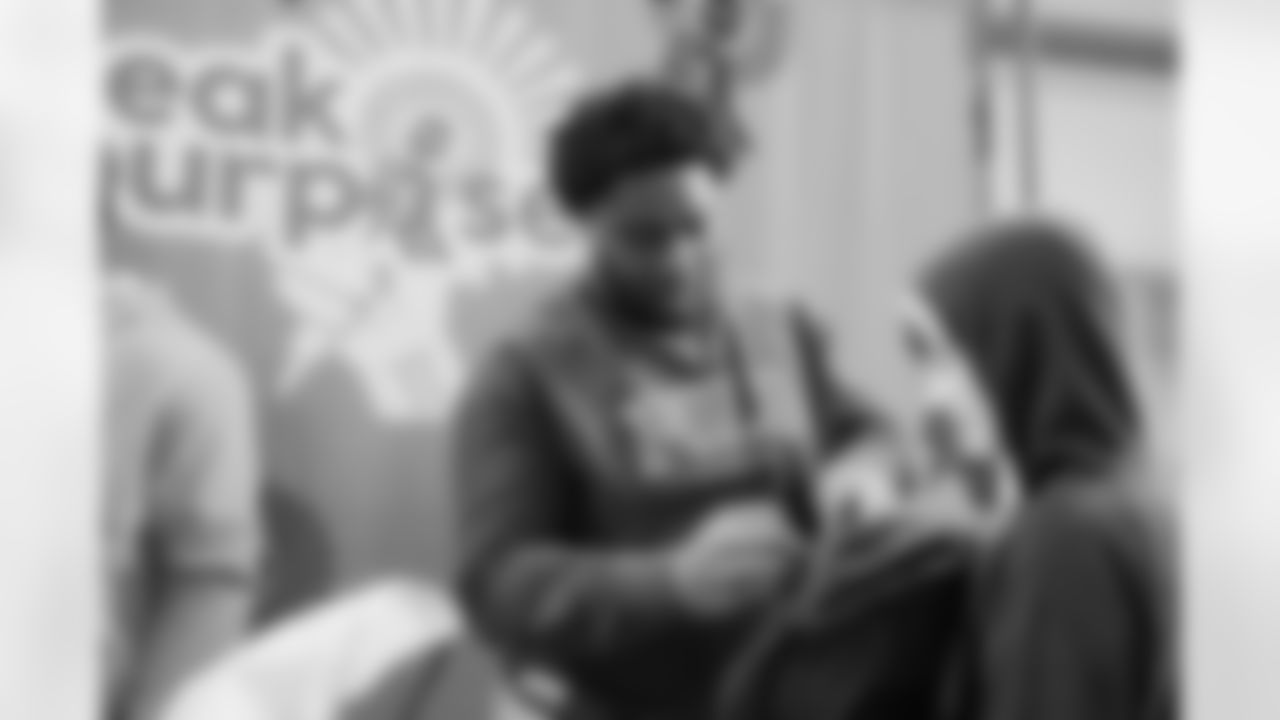
Seahawks rookies Christian Haynes, Tyrice Knight and Michael Jerrell attended the Speak With Purpose event to support youth public speakers on Sunday, June 16, 2024.

Seahawks rookies Christian Haynes, Tyrice Knight and Michael Jerrell attended the Speak With Purpose event to support youth public speakers on Sunday, June 16, 2024.

Seahawks rookies Christian Haynes, Tyrice Knight and Michael Jerrell attended the Speak With Purpose event to support youth public speakers on Sunday, June 16, 2024.

Seahawks rookies Christian Haynes, Tyrice Knight and Michael Jerrell attended the Speak With Purpose event to support youth public speakers on Sunday, June 16, 2024.

Seahawks rookies Christian Haynes, Tyrice Knight and Michael Jerrell attended the Speak With Purpose event to support youth public speakers on Sunday, June 16, 2024.

Seahawks rookies Christian Haynes, Tyrice Knight and Michael Jerrell attended the Speak With Purpose event to support youth public speakers on Sunday, June 16, 2024.

Seahawks rookies Christian Haynes, Tyrice Knight and Michael Jerrell attended the Speak With Purpose event to support youth public speakers on Sunday, June 16, 2024.

Seahawks rookies Christian Haynes, Tyrice Knight and Michael Jerrell attended the Speak With Purpose event to support youth public speakers on Sunday, June 16, 2024.

Seahawks rookies Christian Haynes, Tyrice Knight and Michael Jerrell attended the Speak With Purpose event to support youth public speakers on Sunday, June 16, 2024.

Seahawks rookies Christian Haynes, Tyrice Knight and Michael Jerrell attended the Speak With Purpose event to support youth public speakers on Sunday, June 16, 2024.

Seahawks rookies Christian Haynes, Tyrice Knight and Michael Jerrell attended the Speak With Purpose event to support youth public speakers on Sunday, June 16, 2024.

Seahawks rookies Christian Haynes, Tyrice Knight and Michael Jerrell attended the Speak With Purpose event to support youth public speakers on Sunday, June 16, 2024.

Seahawks rookies Christian Haynes, Tyrice Knight and Michael Jerrell attended the Speak With Purpose event to support youth public speakers on Sunday, June 16, 2024.

Seahawks rookies Christian Haynes, Tyrice Knight and Michael Jerrell attended the Speak With Purpose event to support youth public speakers on Sunday, June 16, 2024.

Seahawks rookies Christian Haynes, Tyrice Knight and Michael Jerrell attended the Speak With Purpose event to support youth public speakers on Sunday, June 16, 2024.
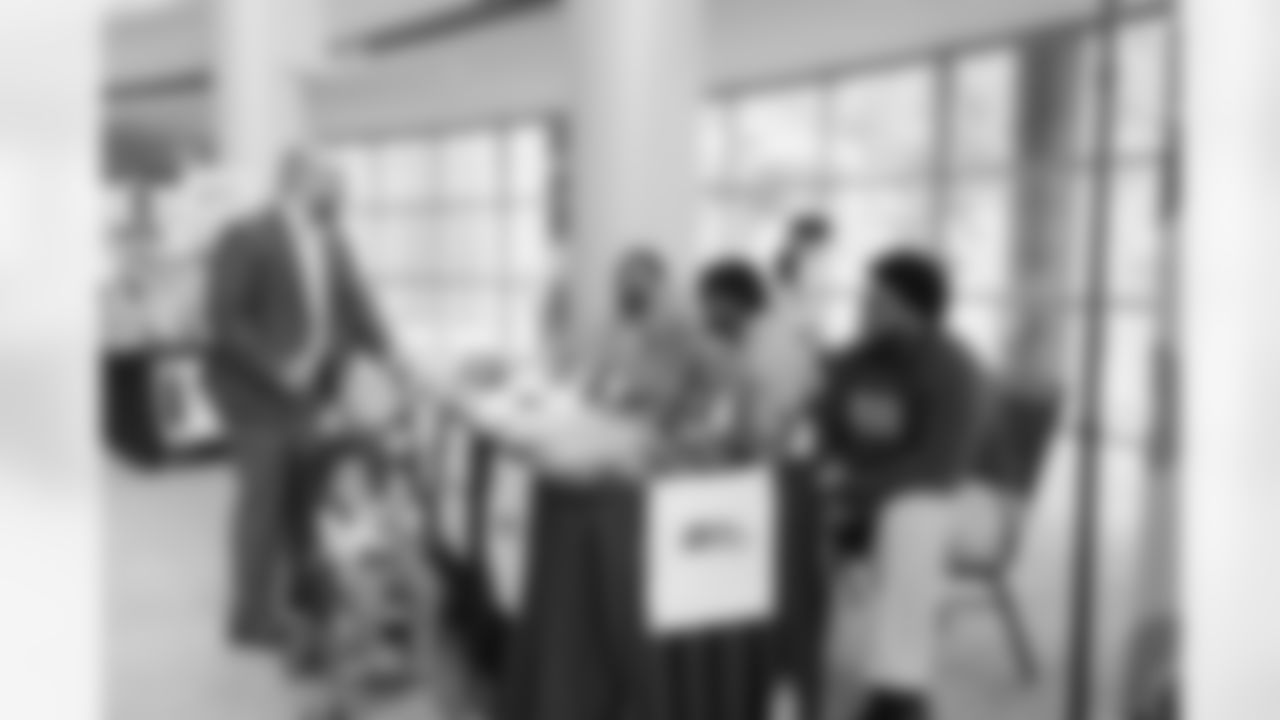
Seahawks rookies Christian Haynes, Tyrice Knight and Michael Jerrell attended the Speak With Purpose event to support youth public speakers on Sunday, June 16, 2024.
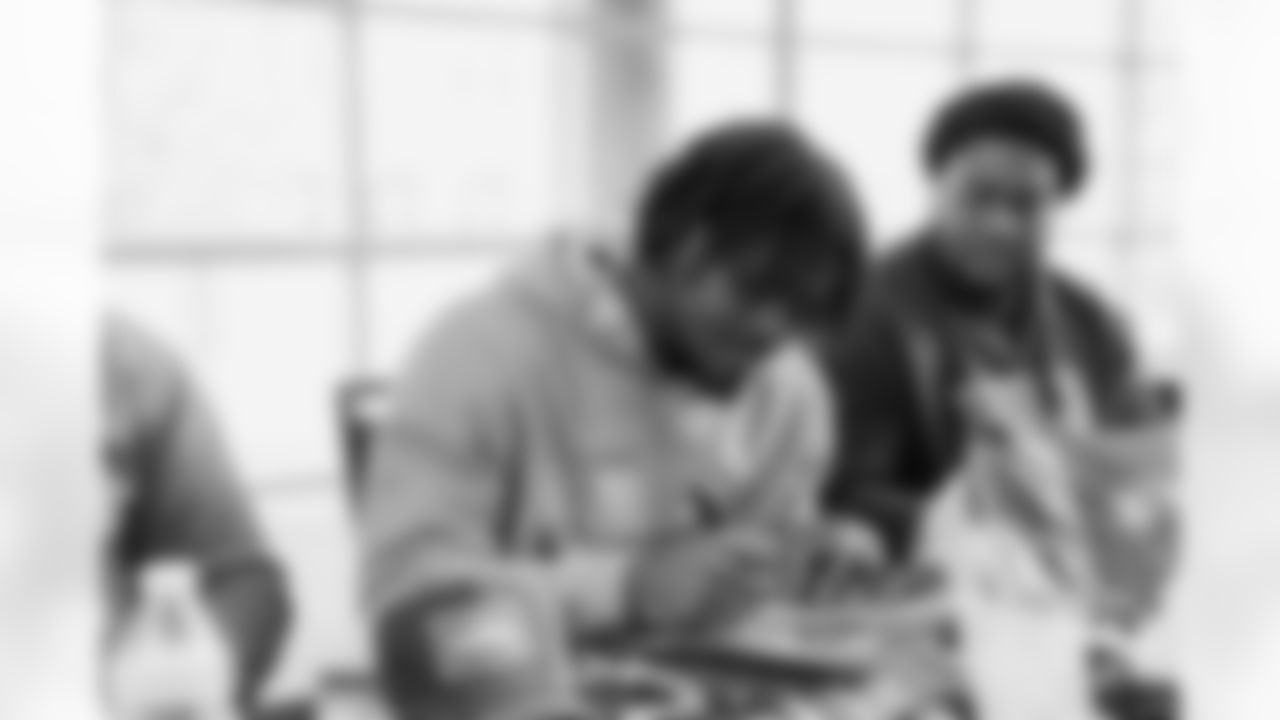
Seahawks rookies Christian Haynes, Tyrice Knight and Michael Jerrell attended the Speak With Purpose event to support youth public speakers on Sunday, June 16, 2024.

Seahawks rookies Christian Haynes, Tyrice Knight and Michael Jerrell attended the Speak With Purpose event to support youth public speakers on Sunday, June 16, 2024.

Seahawks rookies Christian Haynes, Tyrice Knight and Michael Jerrell attended the Speak With Purpose event to support youth public speakers on Sunday, June 16, 2024.

Seahawks rookies Christian Haynes, Tyrice Knight and Michael Jerrell attended the Speak With Purpose event to support youth public speakers on Sunday, June 16, 2024.

Seahawks rookies Christian Haynes, Tyrice Knight and Michael Jerrell attended the Speak With Purpose event to support youth public speakers on Sunday, June 16, 2024.

Seahawks rookies Christian Haynes, Tyrice Knight and Michael Jerrell attended the Speak With Purpose event to support youth public speakers on Sunday, June 16, 2024.

Seahawks rookies Christian Haynes, Tyrice Knight and Michael Jerrell attended the Speak With Purpose event to support youth public speakers on Sunday, June 16, 2024.

Seahawks rookies Christian Haynes, Tyrice Knight and Michael Jerrell attended the Speak With Purpose event to support youth public speakers on Sunday, June 16, 2024.

Seahawks rookies Christian Haynes, Tyrice Knight and Michael Jerrell attended the Speak With Purpose event to support youth public speakers on Sunday, June 16, 2024.

Seahawks rookies Christian Haynes, Tyrice Knight and Michael Jerrell attended the Speak With Purpose event to support youth public speakers on Sunday, June 16, 2024.

Seahawks rookies Christian Haynes, Tyrice Knight and Michael Jerrell attended the Speak With Purpose event to support youth public speakers on Sunday, June 16, 2024.

Seahawks rookies Christian Haynes, Tyrice Knight and Michael Jerrell attended the Speak With Purpose event to support youth public speakers on Sunday, June 16, 2024.

Seahawks rookies Christian Haynes, Tyrice Knight and Michael Jerrell attended the Speak With Purpose event to support youth public speakers on Sunday, June 16, 2024.

Seahawks rookies Christian Haynes, Tyrice Knight and Michael Jerrell attended the Speak With Purpose event to support youth public speakers on Sunday, June 16, 2024.

Seahawks rookies Christian Haynes, Tyrice Knight and Michael Jerrell attended the Speak With Purpose event to support youth public speakers on Sunday, June 16, 2024.

Seahawks rookies Christian Haynes, Tyrice Knight and Michael Jerrell attended the Speak With Purpose event to support youth public speakers on Sunday, June 16, 2024.













